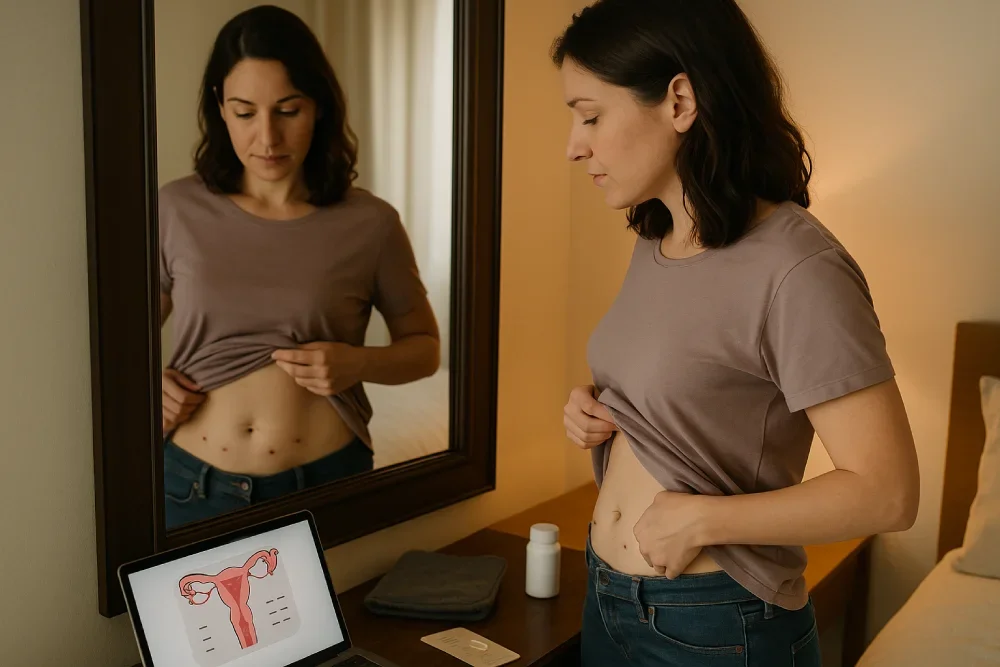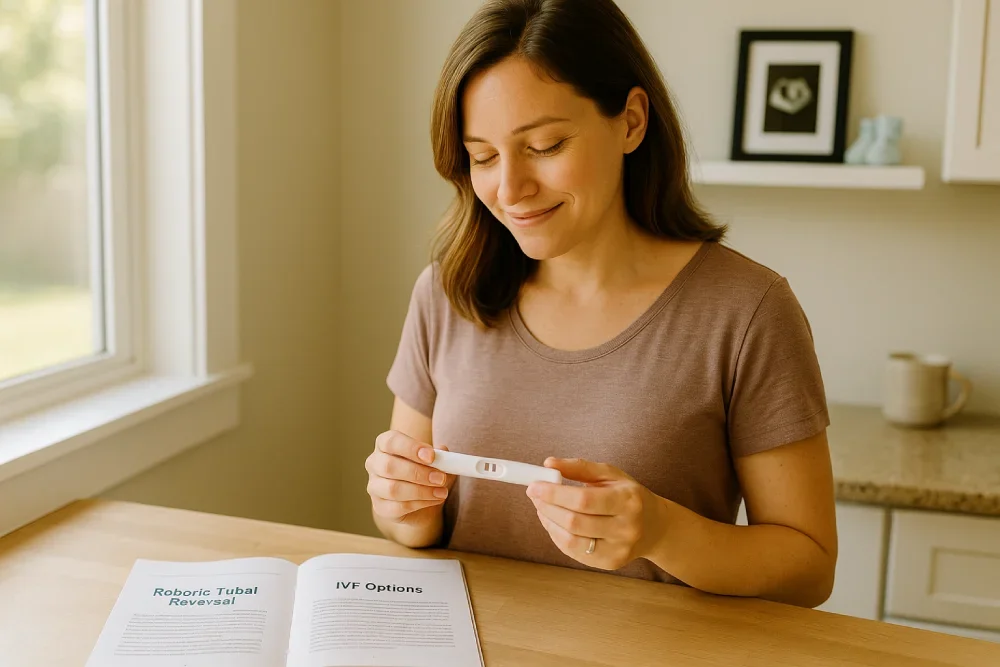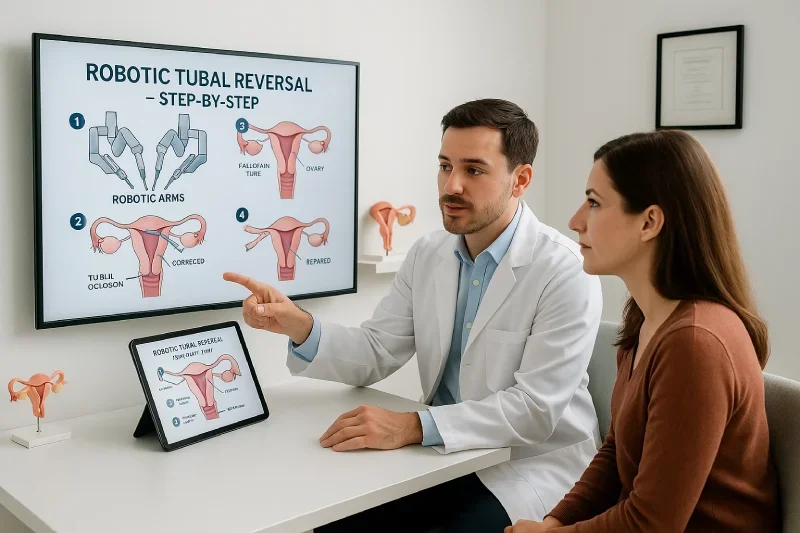Robotic tubal reversal costs range from $5,000 to $10,000 or more, and most insurance plans do not cover this elective procedure.
Read MoreRobotic tubal reversal offers significant advantages in post-operative recovery compared to traditional open surgery.
Read MoreWomen considering fertility options after tubal sterilization face an important choice between robotic tubal reversal and IVF. Both treatments offer good pregnancy rates but work in very different ways. Understanding success rates helps you make the best decision for your situation.
Read MoreRobotic tubal reversal surgery offers an excellent safety profile with significantly lower risks than traditional open surgery.
Read MoreImagine deciding to untie your tubes, restore fertility, and open the door to pregnancy again—yet one nagging question keeps popping up: “How much is this going to hurt?” Whether you’re traveling from Dallas-Fort Worth or you live five minutes from Texas Health Huguley in Burleson, knowing the real pain profile of a tubal reversal procedure will help you plan, prepare, and feel confident.
Read MoreWhile there’s no hard-and-fast age limit for tubal reversal in Burleson, TX, real-world success data show that fertility declines steadily as birthdays accumulate. In plain English, healthy women under 35 generally see the highest pregnancy rates; however, motivated patients in their late thirties or early forties can—and do—welcome babies after tubal ligation reversal surgery every single year.
Read MoreMany women in Burleson, Fort Worth, and the wider DFW area choose tubal sterilization believing it is a permanent birth control method. Later, when life changes and the desire to have children returns, they discover not every tubal ligation—or Essure procedure—can be undone. If most or all of the fallopian tube has been removed or the fimbrial end clipped away, reimplantation of tube tissue is impossible.
Read MoreTubal reversal offers Johnson County women a second chance at natural conception after a prior tubal ligation, but everyone wants to know, “How fast will I conceive?” National data tell us that the chance of becoming pregnant after a successful tubal reversal in a woman under age 35 is 60–80% over a two-year period.
Read MoreFor many women who have undergone tubal ligation, the desire to conceive again can become a reality thanks to advances in surgical fertility restoration.
Read MoreTubal ligation, commonly referred to as “getting your tubes tied,” is a form of permanent birth control that involves sealing or cutting the fallopian tubes to prevent pregnancy. While the procedure is intended to be irreversible, many women later choose to restore their fertility due to changes in life circumstances or a renewed desire to conceive naturally.
Read MoreTubal reversal in Burleson, TX, while offering the possibility of natural conception, carries risks like any surgical procedure—bleeding, infection, anesthesia complications, and an increased risk of ectopic pregnancy. On average, Fort Worth–area fertility centers report that 40–85 % of women conceive within two years after reversal surgery.
Read MoreTubal ligation, commonly referred to as “getting your tubes tied,” is a form of permanent birth control that involves sealing or cutting the fallopian tubes to prevent pregnancy. While the procedure is intended to be irreversible, many women later choose to restore their fertility due to changes in life circumstances or a renewed desire to conceive naturally.
Read More











